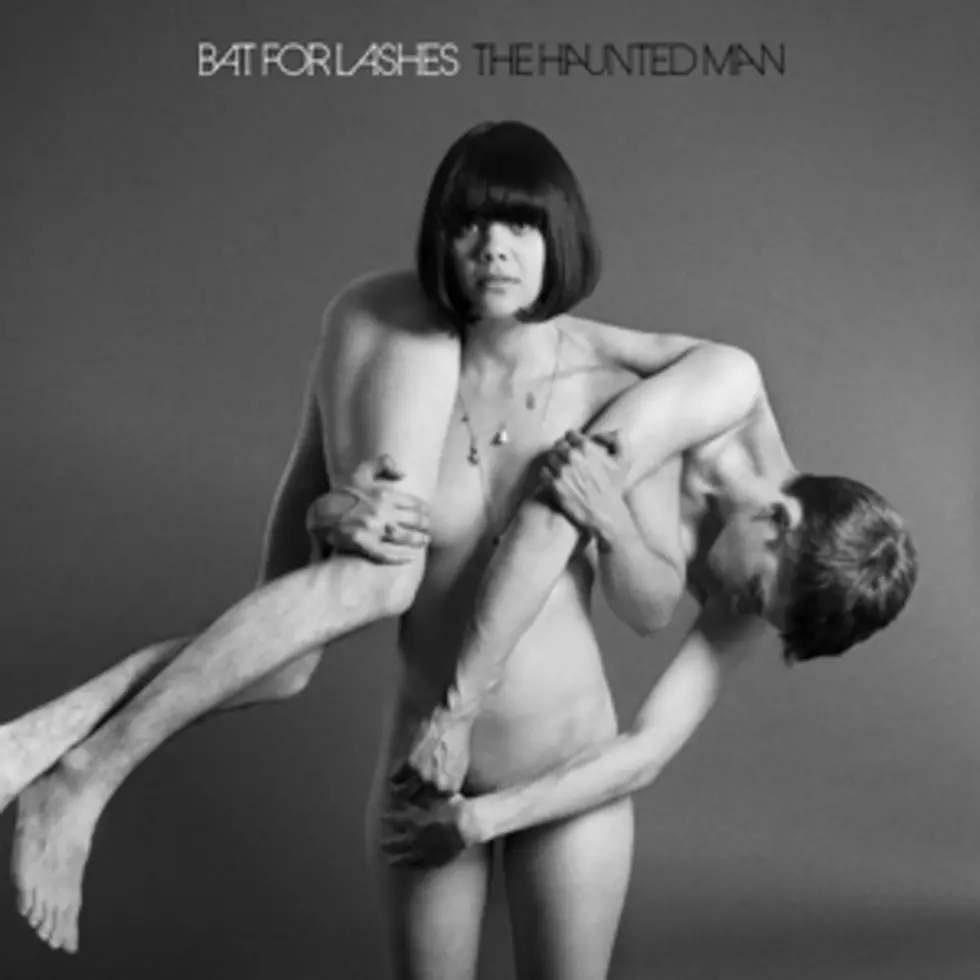
Bat for Lashes Discusses ‘The Haunted Man’ Album and ‘Controversial’ Cover Art – Exclusive Interview
For most of her career, Natasha Khan -- aka the frontwoman and creative force behind Bat for Lashes -- has been compared to artists like Siouxsie Sioux, Björk and Kate Bush, but with the release of her band's upcoming third album, 'The Haunted Man,' all those comparisons might have to stop.
The new album, due on Oct. 15, finds Khan traveling new territory, both musical -- her trademark dramatic melodies have been given new room to roam in the vast sonic expanes of 'Haunted' -- and lyrical, with a set of more inward-looking, but still wholly relatable, pop songs.
We caught her in the thick of the promotional campaign for 'The Haunted Man,' with interviews piling up on her schedule, but with the hard work of writing and recording them behind her, Khan sounded relaxed and happy discussing the new songs.
You've said that the songs on your last album, 2009's 'Two Suns,' were affected by extensive traveling between the U.K., New York City and California. What kind of impact did your environment have on your songwriting this time around?
It affected things in kind of the inverse way -- I stayed in one place for most of the writing. I guess it was a reaction to be all over the world, and feeling crazy and kind of burnt out when I finished touring for the last album. I ended up staying in Brighton by the sea, in the Sussex countryside, and I think it did really seep in.
It's a more inward-looking album, I guess. With the backdrop of the English countryside, it helped inspire an intimate, deep look at my ancestry, my family patterns -- going back in time and thinking about where I've come from, the things that have happened to England and my family. The wars.
It was a reflective period, I guess. I was doing some gardening in Virginia Woolf's sister's house, and studying with my old art teacher, watching a lot of old English films and reading books I enjoyed when I was little. I sort of immersed myself in all of it.
One of the things that's interesting about all this introspection is that you've described a lot of your songs as being written rhythm-first, which often isn't the case with such contemplative music. Did you use a different writing process this time around?
Right. I think for me, this time I -- well, I often need chordal structures to sing over. But this time, I gravitated more towards deep, heavy bass lines, and there seemed to be a desire to put the vocals really loud on top, and to make that bass really bold. There was a big gap left in the middle, where the melodic, chordal space usually is.
But then there were songs like 'Lilies,' which I did on the autoharp with voice, and then added the bass and beats afterwards. I'd say in general, I'd say I was drawn toward creating more space for the vocal -- just being really direct. I knew I wanted more beats, more rhythmic sounds and fewer washy layers of music.
Did the songs coalesce naturally over a period of time, or was there a moment when you knew you were working on a new album?
I'm always working on a new record. [Laughs] You're always hoping you're going to write something amazing that can go towards your next piece of work.
At the beginning, I was frustrated, and I knew it was because I wasn't writing great stuff -- I wanted to know the next record had started and it was going to be great, but I was stuck in that traumatic writer's block period, which is dreadful. But once I'd written 'Lilies' and 'The Haunted Man,' I felt like they provided a very strong foundation for what was to come. I was reassured at that point -- I understood the light and dark spectrums for the album.
It was a painful, long process, though. It was probably the hardest thing I've ever done, I think. It took layers and layers and layers of work -- working alone, collaborating, going out and gathering bits, stripping them back, editing. It's been a very involved, long, ongoing process, fraught with worry. [Laughs] And now I look 150, and it's great.
'Two Suns' was basically a concept album. Did that make it more difficult for you to figure out what you wanted to say next?
Yeah, it's true that with that album, I felt so sure of the parameters within which I wanted to work, and it set a very strong precedent lyrically. Whereas with this one, I was traversing a much more personal landscape, and within the process of making the album, I was looking at myself, which made things much more complex than looking at, say, the cosmos or the planets.
So it was very deep psychological work -- it took me reaching into myself to realize the reference points that linked the songs to each other, although I wasn't doing that consciously, so I ended up writing a whole bunch of songs. I think I had 30 or 40, and then gradually this group started to present themselves as the ones that felt boldest and strongest. The ones with the most identity. And luckily, they all kind of felt like they were part of a family, and stepped forward to be joined in matrimony [laughs].
Given that you were working from such a large group of demos, how did you know when it was time to just be done and let the songs go?
It was really hard. Right up until the last moment, I was changing the order, and there were a couple left that I desperately wanted to be on the record, but they didn't feel balanced, so I kept them for B-sides and extras and stuff. But I'm so happy with the final 11 -- this feels right.
That's one thing about getting older, is you start to really understand the editing process, and the balance it takes to be true to your work, rather than letting your ego get involved, you know? You kind of become a bit more Zen about what's meant to be.
Can you talk about the significance of the phrase 'The Haunted Man'?
Yeah, I think the haunted man comes up throughout the album, and for me he represents lots of different figures in my history, and in my family. I've been haunted with his burden in terms of my relationships and things I've done, and I think the album's about being haunted -- feeling those things. And letting it go.
From the dark part, which is 'The Haunted Man,' into 'Lilies,' which is about embracing life and moving forward and being hopeful about starting the rest of your life ... that moment where you let go of the things that haunt you, or the need to rescue haunted people -- the decision not to continue with that, but to make your own way forward. The burden of carrying that is, I think, reflected on the cover.
Ultimately, I think it's a hopeful record, with a lot of healing and acceptance. Letting go of ghosts and kind of addressing where I was. I feel like it's a rite of passage, in terms of love and relationships.
All those things are definitely reflected in the cover artwork, which has caused a bit of a stir since it was revealed. What's it been like for you to see and hear the reactions to that photo?
I don't look at anything, so I've got no idea what that was [laughs]. And I probably don't want to know. But I have heard a bit about it from others, and I think it's interesting in our day and age that there are women who wear lingerie on their artwork, and get Photoshopped into the most ridiculous body image that we're all supposed to aspire to, and lip-glossed and fake tanned and preened and sexualized, and this, for me, it was just like -- this is just me.
I'm glad I'm just that controversial just by being me [laughs]. But that's all it is -- there isn't any retouching or anything like that. It's real, it's raw, it's wild, it's natural. It's just bodies, and that's a beautiful thing, I think. I find it interesting that anyone could be freaked out by that -- it just goes to show, doesn't it, that you don't bat an eyelid at someone simulating a sexual position, but someone just standing in a direct, non-sexual pose is causing strong reactions.
I mean, Patti Smith, and PJ Harvey, and all of those women -- when I was growing up, I thought they were so badass, because they just didn't care. I think when we paint over things in that slick, pristine way, we're losing a crucial intimacy -- that's the reason I put my vocal up loud, and stripped the music back. Everybody seems to be afraid of raw, unabashed intimacy.
Someone told me the other day that the "thank God I'm alive" line in 'Lilies' made them uncomfortable, and it's like the idea that we're so frightened of being so intimate and open about joyousness and our natural ability to just be, and be intimate with each other, and be alive. That's what I wanted to address a little bit.
Watch the Bat for Lashes 'Laura' Video
More From Diffuser.fm









